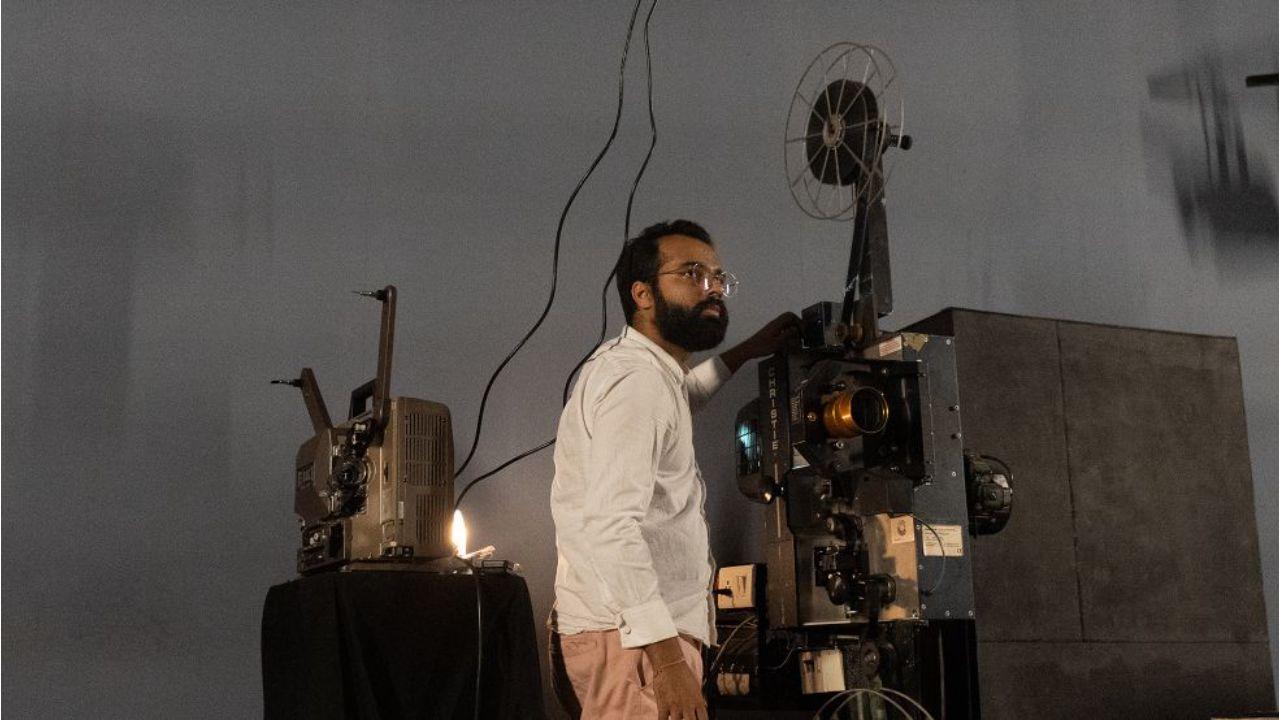Harkat Lab is staying with the film medium even as much of the world goes digital. Founder Karan Suri Talwar talks to Mid-Day.com about the lab’s upcoming 45-day residency and challenges from the pandemic

Karan Suri Talwar. Photo Courtesy: Karan Suri Talwar/Harkat Studios
‘Digital’ has been a buzzword for quite a few years now. It was the only way we functioned in 2020 due to the coronavirus pandemic. While we mostly consume content – films, TV shows– through the digital medium, it was celluloid that laid the groundwork for modern-day filmmaking. The people behind Versova’s popular culture space Harkat Studios have not forgotten the hard labour involved in shooting and developing film into moving images. It prompted them to start hosting ‘The 16mm Film Festival’ four years ago.
Now, to boost the passion for celluloid films further, the team plans to host a 45-day residency called ‘Celluloid Karigar’. The residency will be held at a space they call the Harkat Lab, which will be thrown open so that others in the community can use the equipment there and make their own works with celluloid. Speaking about the residency, Harkat Studios founder Karan Suri Talwar, says, “The residency is part of the film lab, which we put together at the start of this year. After doing celluloid workshops and the 16 mm film festival, the residency is sort of a culmination of a lot of the knowledge building, the community that we have been growing and the kind of work we want to make and have been making.”
The call for applications is open until May 15. Of course, Talwar is aware the pandemic is far from over. Even if they wrap up the selection process for the residency, he says given the restriction imposed on the state due to Covid-19, the start of the residency will likely be delayed by some weeks, into the latter half of June.
Talwar—who runs the collective with his partner Michaela Talwar—gives credit to the grant that they received from the Gujral Foundation at the start of the year for allowing them to set up the lab. For this residency, people need not have advanced knowledge about celluloid; they will be helped by the artistic lab staff in developing and working with the medium. The group's primary expectation, Talwar says, is to select someone who can question the very nature of the moving image and bring new ideas and thought into the cinematic universe. That way they hope South Asian artists will develop their own language of celluloid cinema to replace western concepts of avant garde and experimental films.
Talwar adds, “One primary expectation is that whatever idea or thought you have should fit into our larger curatorial, which is basically what we call ‘India on Film’.” The concept of ‘India on Film’ was first presented by the group in 2019 at the Serendipity Arts Festival in Goa. They had put together a collection of 20 experimental films made solely on celluloid by Indian filmmakers.
The collective faced multiple hardships in the pandemic year, from financial sustainability to questioning the purpose of what they are doing and what they were doing. But it was a period of invention too. They launched a website, Filmware, where they sold jewellery made of 16 mm found footage. Talwar also admits that they were “a little bit lucky and privileged in a way that the system that we have inherently put in place.” He says, “We do a lot of commercial work and experimental work as well. The commercial work has kept us really afloat. So, our model has saved us a little bit.” They work on web content and digital commercials too; most recently they made the title sequence of Netflix’s ‘Bombay Begums’.
For now, they are offering two spots on the residency but will likely add more throughout the year. “We have got 30-odd applications so far and surprisingly all of them have an interesting quality to them in some way. We are hoping for more people to apply,” informs Talwar. The goal of the residency is for the finished film to fit into the larger paradigm of Harkat and also to be sent to film festivals across the globe.
At the end of the year, they expect to host its own exhibition to showcase the films made. “The plan is to present multiple works, installations, film revivals and all kind of new things as exhibition and screenings.”
 Subscribe today by clicking the link and stay updated with the latest news!" Click here!
Subscribe today by clicking the link and stay updated with the latest news!" Click here!









